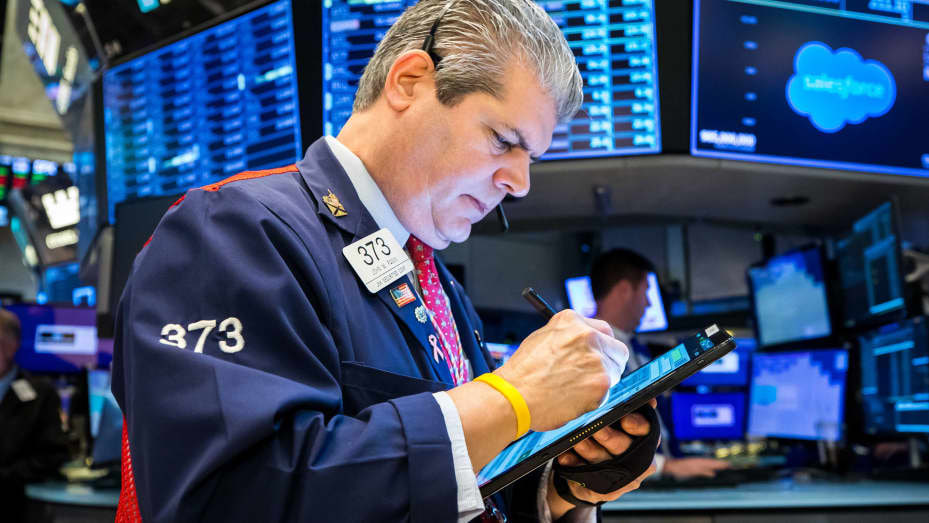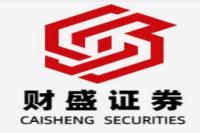Hong Kong Market Soars: A Deep Dive into the October 202X Surge
Meta Description: Hong Kong's stock market experienced a dramatic surge in October 202X, with the Hang Seng Index jumping 4% and significant gains in Chinese brokerages and property stocks. This in-depth analysis explores the driving forces behind this rally, offering expert insights and predictions for the future of the Hong Kong market. Keywords: Hang Seng Index, Hong Kong Stock Market, Chinese Brokerages, Property Stocks, Market Surge, October 202X Rally.
Imagine this: You're glued to your screen, watching the numbers tick upwards, a wave of exhilaration washing over you as you witness a market rebound of epic proportions. That's exactly what happened in the Hong Kong stock market in October 202X. The Hang Seng Index, a key barometer of the region's economic health, leaped a remarkable 4%, reaching 21,981.42 points—a sight that sent ripples of excitement across trading floors worldwide. But this wasn't just a fleeting surge; it was a powerful statement, a testament to the resilience of the Chinese economy and a potential harbinger of things to come. This wasn't just a blip on the radar; this was a full-blown market earthquake, shaking up the status quo and leaving investors scrambling to understand the underlying forces that propelled this astonishing climb. This wasn't just about numbers on a screen; it was about real people, real investments, and real opportunities. This was a pivotal moment, a chapter in the ongoing saga of Hong Kong's vibrant and often unpredictable financial landscape, and we're diving deep into the heart of it to unravel the mystery and illuminate the path forward. Get ready to uncover the secrets behind this market explosion – because this isn't just another market report; it's your chance to gain a crucial edge in understanding the future of one of Asia's most dynamic markets. Buckle up, because this is going to be a wild ride!
Hang Seng Index Soars: Unpacking the October 202X Rally
The breathtaking 4% jump in the Hang Seng Index wasn't an isolated event. It was part of a broader, more significant market movement that saw impressive gains across various sectors. The Chinese brokerage sector, for example, experienced an astounding 19% surge—its best performance since 2016. This phenomenal growth signifies a renewed confidence in the Chinese financial system, a sentiment further reinforced by the substantial 26% increase in the Chinese property stock index. Whoa! These figures are nothing short of spectacular, and they beg the question: What fueled this incredible rally?
Several factors contributed to this dramatic market upswing. Firstly, there was a palpable sense of optimism surrounding the government's economic policies aimed at stimulating growth. While specific measures remain a topic of ongoing discussion and analysis, the market clearly reacted positively to the general direction of these initiatives. Secondly, global macroeconomic conditions, including easing inflation concerns in certain key markets, provided a conducive environment for investment. Thirdly, and perhaps most importantly, there was a significant influx of foreign investment into the Hong Kong market, reflecting a growing belief in its long-term potential.
However, it's crucial to approach these developments with a balanced perspective. While the October rally was undeniably impressive, it's not without its potential pitfalls. Geopolitical factors, regulatory changes, and unforeseen economic headwinds could easily influence market sentiment. It's vital to remember that market fluctuations are inherent, and while this surge is cause for optimism, it's not a guarantee of sustained growth. This is where careful risk assessment and a well-diversified investment strategy become paramount.
Analyzing the Key Players: Chinese Brokerages and Property Stocks
The exceptional performance of Chinese brokerage and property stocks deserves closer examination. Their significant gains highlight the interconnectedness of different sectors within the Hong Kong market. The surge in brokerage stocks, in particular, suggests a renewed faith in the future of the Chinese economy and the potential for increased trading activity. Similarly, the robust growth in property stocks reflects a positive outlook on the real estate sector, although it's also important to stay aware of any potential regulatory risks within this segment.
| Sector | Percentage Increase | Potential Reasons for Increase | Potential Risks |
|----------------------|----------------------|-------------------------------------------------------------------|------------------------------------------------------|
| Chinese Brokerages | 19% | Renewed confidence in Chinese economy, increased trading activity | Regulatory changes, economic slowdown in China |
| Property Stocks | 26% | Positive outlook on real estate sector, government support | Overvaluation, regulatory tightening, market corrections |
The interconnectedness between these sectors underscores the importance of holistic market analysis rather than focusing solely on individual stocks or sectors. It's a classic case of "the whole is greater than the sum of its parts," illustrating the complex interplay of forces within the Hong Kong market.
Long-Term Outlook and Investment Strategies
Predicting the future is, of course, impossible. However, based on current market trends and expert analysis, a cautiously optimistic outlook seems reasonable. The October rally signals a potential shift in market sentiment, but sustained growth will depend on several factors, including continued economic stability in China, prudent government policies, and a stable global economic environment.
For investors, a diversified portfolio remains the cornerstone of a robust investment strategy. This approach mitigates risk by spreading investments across various asset classes and sectors. Regular review and adjustment of your portfolio based on market conditions is crucial, ensuring that your investments align with your risk tolerance and long-term financial goals. Remember, consulting a qualified financial advisor is always a wise decision.
Frequently Asked Questions (FAQ)
Q1: What caused the sudden surge in the Hang Seng Index?
A1: A confluence of factors contributed, including positive sentiment surrounding government economic policies, easing global inflation concerns, and a significant influx of foreign investment.
Q2: Is this a sustainable surge, or is it just a temporary blip?
A2: While the rally is impressive, sustainability depends on various factors, including ongoing economic stability in China and the global economic environment. It's not a guaranteed indicator of long-term growth.
Q3: Are Chinese brokerage stocks a good investment right now?
A3: This depends on your individual risk tolerance and investment strategy. While their recent performance has been strong, it's essential to conduct thorough due diligence and consider potential risks before investing.
Q4: How do geopolitical factors influence the Hong Kong stock market?
A4: Geopolitical events can significantly influence investor sentiment, impacting market volatility and overall performance. This highlights the importance of staying informed about global events.
Q5: What role does government policy play in the Hong Kong market?
A5: Government policies, both domestically and internationally, significantly affect market sentiment and investor confidence. Policy changes can create both opportunities and challenges.
Q6: What is the best way to invest in the Hong Kong market?
A6: Diversification is key. Consult with a financial advisor to create a strategy tailored to your individual risk tolerance and financial goals. Thorough research and understanding of the market are vital.
Conclusion: Navigating the Dynamic Hong Kong Market
The October 202X surge in the Hang Seng Index represents a significant development in the Hong Kong market. While the reasons behind this phenomenal growth are multifaceted, it's clear that a combination of positive economic indicators, government policies, and global market conditions played a crucial role. However, as with any investment, it's essential to approach this with a balanced perspective, acknowledging both the potential for further growth and the inherent risks involved. By staying informed, conducting thorough research, and adopting a well-diversified investment strategy, investors can navigate the dynamic landscape of the Hong Kong market and potentially capitalize on future opportunities. Remember, the market is a marathon, not a sprint; patience, knowledge, and a well-defined plan are your best allies in this exciting yet unpredictable journey.



